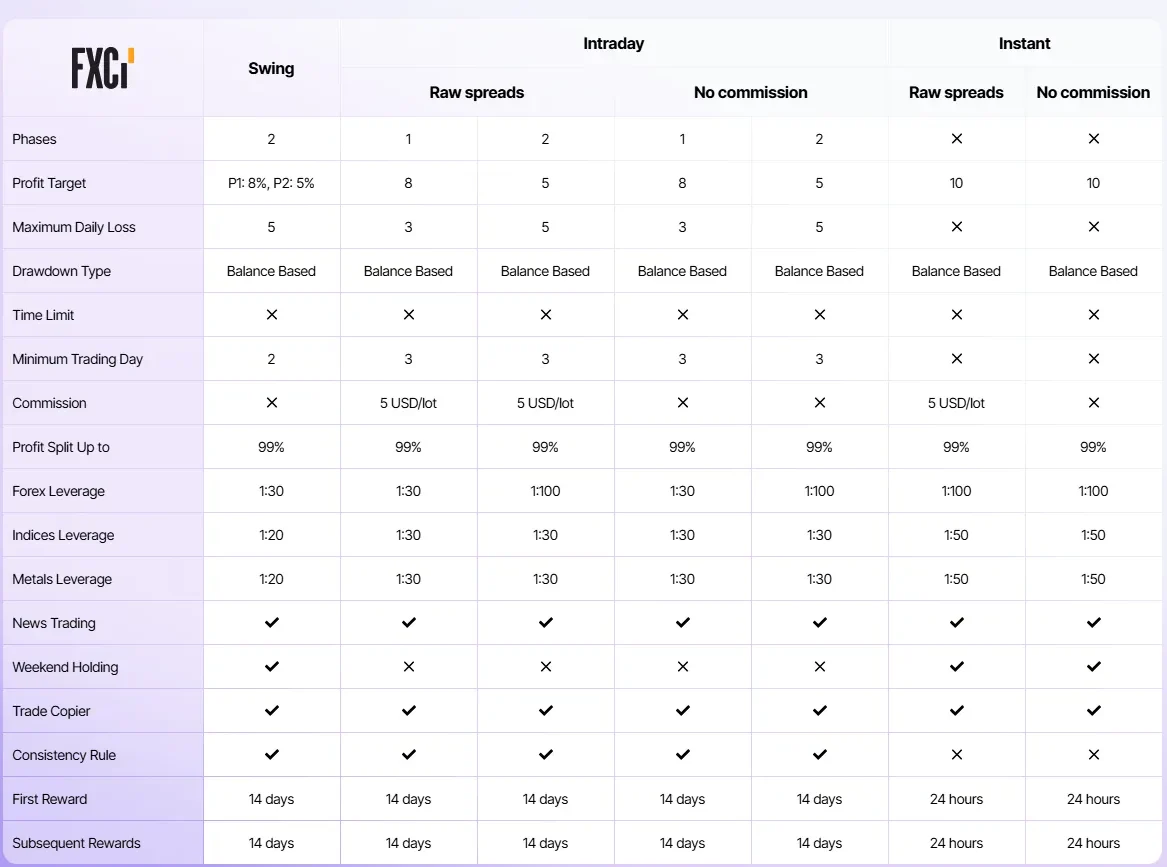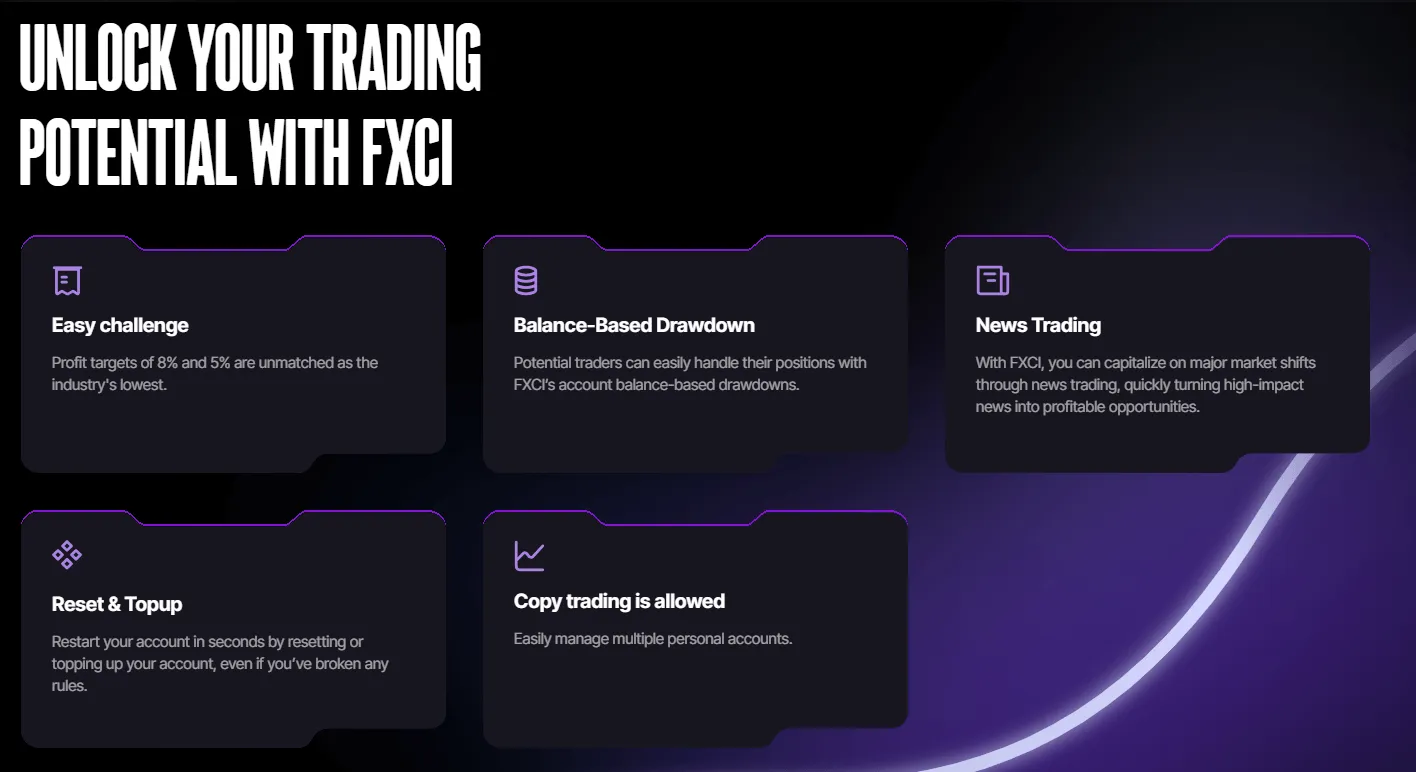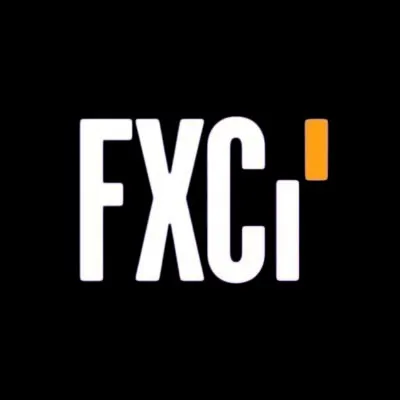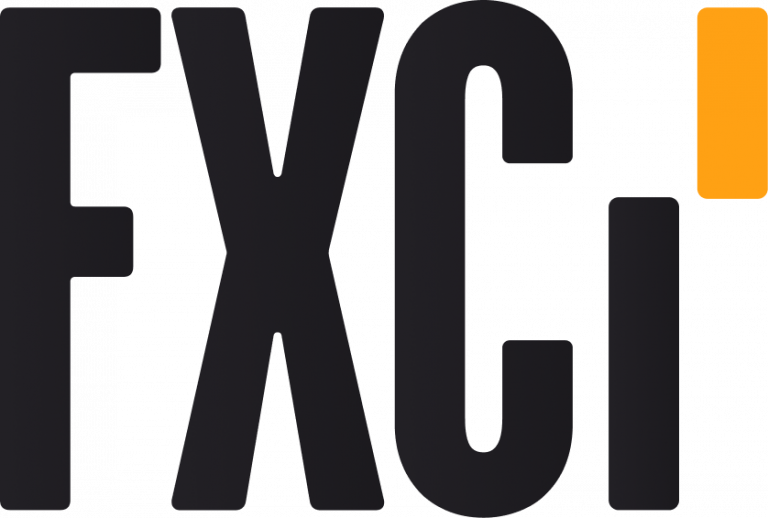How to choose a prop firm
FXCI prop trading firm offers funded accounts up to $300,000 in India. Earn up to 99% profit trading with FXCI’s capital.
LIMITED TIME! 50% OFF Trading Challenges
Use code «FXCI50» before time runs out. Start with $300K capital & earn 99% profits. Register now below 👇
Introduction
When you decide to enter the world of proprietary trading, selecting the right prop firm is essential. As the industry grows, especially in markets like India, the number of prop firms offering various trading opportunities and conditions has expanded. But how do you ensure that you're choosing the right prop firm for your needs and trading style? In this article, we will discuss the key aspects to consider when making this decision, including trading conditions, fees, support, and growth potential.

Key Factors to Consider When Choosing a Prop Firm
When selecting a prop firm, several factors should guide your decision-making process. It's important to weigh these elements to ensure you're making the best choice for your trading career.
1. Trading Capital and Profit Split
One of the most important aspects when deciding how to choose a prop firm is understanding the firm's capital allocation and profit-sharing terms. Prop firms typically offer traders capital to trade, and the profit split is how the firm divides the earnings. A higher profit split generally means more potential earnings for you, but it's essential to check the firm's conditions and the percentage you will receive.
Example:
- Firm A: Offers a 70/30 profit split (70% to you, 30% to the firm).
- Firm B: Offers a 99/1 profit split.
The profit split is one of the primary ways to maximize your trading income, so it's important to compare the offers from different prop firms.
2. Fees and Evaluation Costs
Another key consideration is the cost structure. Many firms charge fees for evaluation or assessments, where traders must demonstrate their trading abilities. It's crucial to understand these costs and how they might impact your profitability in the long run.
Types of Fees:
- Evaluation Fees: Some firms charge a one-time fee for access to the evaluation process, where you demonstrate your skills.
- Monthly Fees: Other firms require a monthly subscription fee to access their platform and resources.
- Profit Share Fees: Certain firms may deduct additional fees from your profits for the use of their capital or tools.
3. Support and Resources
A prop firm’s support and resources can significantly impact your success. Whether it's access to training materials, advanced trading tools, or customer service, these resources can help you improve your trading and performance.
Key Support Factors:
- Customer Service: Ensure the firm has a responsive support team to help with issues.
- Training Materials: Some firms offer comprehensive educational resources, including courses and mentorship.
- Trading Tools: Look for access to advanced trading tools, such as real-time data, charting software, and algorithmic trading platforms.
4. Risk Management and Rules
When evaluating a firm, you should understand the risk management strategies they have in place. Some firms have strict rules about risk management, including maximum drawdown limits or position size restrictions. These rules can help protect the firm’s capital, but they may also limit your ability to trade freely.
Examples of Common Risk Management Rules:
- Max Drawdown: Some firms set a maximum drawdown limit, such as 10%, beyond which your account will be closed.
- Position Sizing: Limits on how much you can trade in one position to reduce risk.
- Trading Hours: Restrictions on trading during high-risk hours, such as during major news releases.

Conclusion
In summary, how to choose a prop firm depends on several factors, including the capital allocation, profit split, fees, support, and risk management rules. By carefully evaluating these factors, you can find a firm that fits your trading style and goals. Remember that the prop firm you choose will play a significant role in your success as a trader, so it’s important to take your time, compare different options, and ensure that you are making the right choice.
FAQ
What is the average profit split offered by prop firms?
The average profit split ranges from 70/30 to 99/1, depending on the firm’s terms.
Are evaluation fees refundable?
Some firms refund the evaluation fees if you pass the assessment and join as a full trader.
How can I ensure that a prop firm is trustworthy?
Research reviews, verify their regulatory status, and ensure that their terms are transparent.
Can I use my own trading strategy in a prop firm?
Most firms allow you to use your own strategy, but some may have restrictions on certain high-risk strategies.
What happens if I violate a risk management rule?
Violating risk management rules could lead to account suspension or termination, depending on the firm’s policies.


